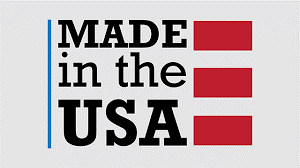Industry News
The Largest-Ever Civil Penalty for "Made in USA" Violation
TweetMay 8, 2024
By:
Ashley J. Bodden
In April 2024, Williams-Sonoma agreed to pay almost $3.2 million for violating the 2020 Federal Trade Commission “Made in USA” order requiring the Williams-Sonoma to tell the truth about whether their products sold were Made in USA.

The Federal Trade Commission (FTC) sued Williams-Sonoma in 2020, alleging the company was advertising multiple products under its brands Goldtouch, Rejuvenation, Pottery Barn Teen and Pottery Barn Kids as being all or virtually all Made in USA when in fact they were not. Williams-Sonoma had agreed to an FTC order that required them to stop making deceptive claims and follow the “Made in USA” requirements. However, fast forward the current complaint alleged that the company marketed their mattress pads under Pottery Barn Teen as “Crafted in America from domestic and imported materials” when the product was actually made in China. This led to further investigation into six other products the company advertised in which the FTC found they violated the 2020 order.
In addition to the civil penalty, the settlement requires Williams-Sonoma to submit annual compliance reports, as well as reenforcing the requirements from the 2020 order. This means that any qualified “Made in USA” claims Williams-Sonoma makes must include clear and conspicuous disclosure about the extent to which the product contains foreign parts, components, and/or processing, and the last substantial transformation must be in the United States, its principal assembly takes place in the United States, and United States assembly operations are substantial.
In recent years, the FTC has been ensuring that “Made in USA” claims are truthful. Earlier this year, another company was fined $2 million for falsely labeling goods as “Made in USA.” The FTC’s Made in USA Labeling Rule went into effect August 13, 2021, which means it is imperative that companies follow the rule in order to avoid civil penalties.
Although the FTC provides a U.S. Origin Claims guideline, it can still be difficult to navigate. For any questions regarding origin requirements, labeling requirements, or substantial transformation, run, don’t walk and contact any attorney at Barnes, Richardson & Colburn, LLP.
